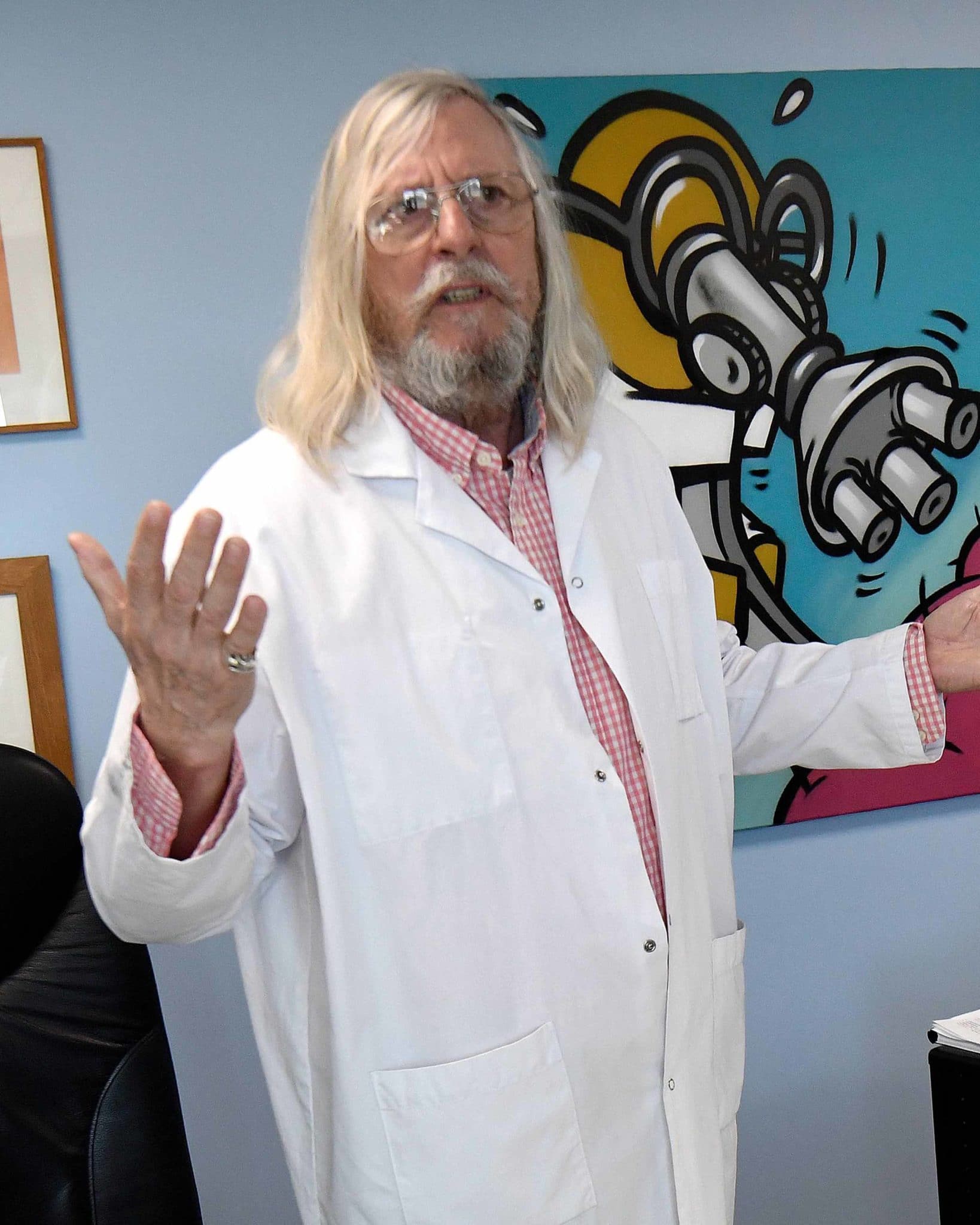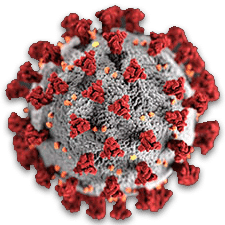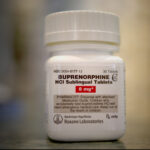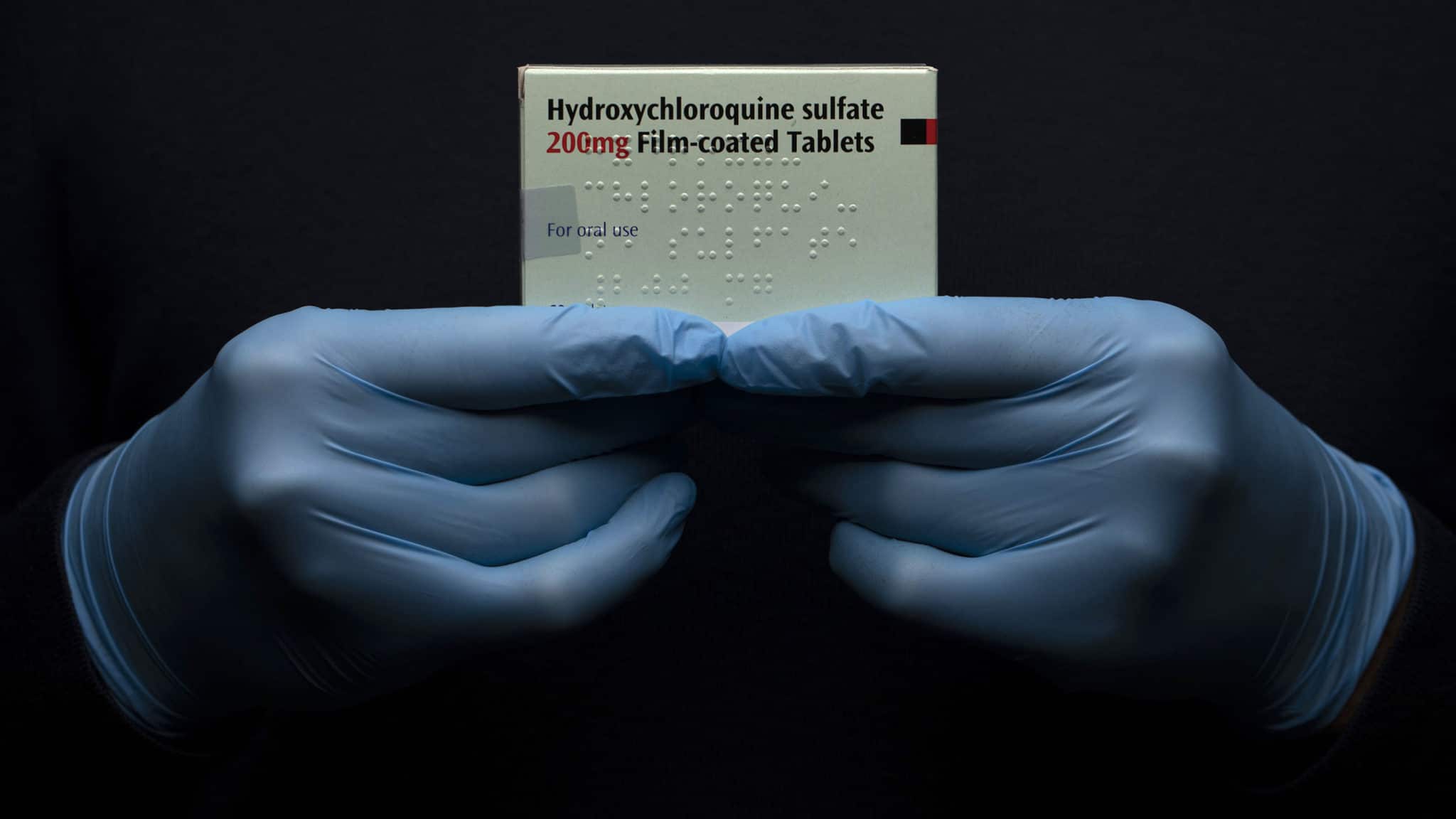Is Hydroxychloroquine Making Covid-19 Clinical Trials Harder?
At some point in late March, Roger Alvarez, a pulmonologist and critical care specialist at the University of Miami Health System, noticed that some of his patients with low oxygen levels continued to decline, even after being placed on ventilators. This gave him an idea: Rather than putting these patients directly on ventilators, what if they were treated with inhaled nitric oxide first? The gas increases blood flow by relaxing and widening blood vessels in the lungs, and it is regularly used to treat a number of conditions, including acute respiratory distress syndrome.
As it happened, Alvarez had been studying the efficacy of a new, purse-sized nitric oxide delivery device — “I had the devices sitting in my research space,” he recalled — so after securing a nod from the manufacturer and approval from the U.S. Food and Drug Administration to use the device on a single patient, he and his colleagues began designing a formal study of patient volunteers so they could have clear, unequivocal evidence that nitric oxide improved outcomes for coronavirus patients on ventilators.
Of course, to do this right — to really know that the gas was the crucial factor — one of his fellow doctors advised that they should exclude Covid-19 patients who were already using other experimental coronavirus therapies, including the anti-malarial and lupus drug hydroxychloroquine (brand name Plaquenil), and tocilizumab, a common arthritis medication.
But this, Alvarez already knew, would be a challenge. “I very plainly told him, I agree with you from a science standpoint,” Alvarez said, “but I can tell you that if you did that right now in Miami, you would have no patients in your trial.” That’s because the vast majority of patients ill enough to need ventilators were already taking one or both of these drugs.
Ultimately, the team decided that if they wanted to study inhaled nitric oxide, they would have to include these patients, even though it could muddy the results. And that’s a problem that many researchers — particularly those mounting smaller studies aimed at exploring new Covid-19 treatments — might soon be facing.
Major hospitals across the country had long-ago adopted hydroxychloroquine as a first-line treatment for Covid-19 when, in more recent weeks, U.S. President Donald J. Trump began endorsing it — without hard evidence — as effective and safe. A small but influential French study — one that many critics say was poorly designed — has helped to further stoke hydroxychloroquine prescriptions. And all of this, some physicians who run clinical trials say, could complicate and delay efforts to scrutinize whether any new treatment is really helping, or even harming, Covid-19 patients.
“The science has to be as good as possible,” said Andre Kalil, an infectious disease doctor at the University of Nebraska, “because that’s the way that we’re going to find therapies and save lives.”
Clinical trials of various Covid-19 treatments are, of course, ongoing — and the FDA has ramped up its capacity to approve new studies. But researchers are grappling with an overarching concern that with so much off-label, ad hoc, and informal experimentation underway in the battle to contain the pandemic, the baseline conditions needed for decisive studies of Covid-19 interventions are becoming more challenging to achieve. They also worry that if the public comes to believe that the evidence on hydroxychloroquine is settled, few patients will want to participate in clinical trials at all. They’ll just want the hydroxychloroquine — and there is already evidence that this is happening.
Alvarez says he gets it. “If the [French] study can be interpreted in a good light and it’s the only one that can, then individual physicians all around the world are hanging onto that because we want to help,” he said. “We’re scared of what we’re seeing. I think any physician would tell you that this is scary and we’re grasping at straws to help people.”
And yet, he and other scientists say, all that grasping might actually be inhibiting the country’s ability to figure out the most effective ways to treat Covid-19.
In a recent editorial published in the Journal of the American Medical Association, Kalil harkened back to the 2014 Ebola outbreak, when high quality studies were slow to be implemented, and ultimately too late to identify an effective treatment. Kalil believes that the best time to start studying treatments is the moment it’s clear there’s an outbreak of a new disease. “The best day,” he said, “is going to be the earliest day.”
In his editorial, Kalil stressed the need to prioritize randomized controlled trials. Widely considered the gold standard for scientific evidence, they are specifically designed to eliminate bias. In this kind of clinical trial, human participants are divided into two or more groups, one that receives the experimental treatment and one that doesn’t — the latter being what’s known as the “control arm.” The groups are assigned at random. Neither the participants nor the researchers get to decide which patients get assigned to which group.
It’s also helpful to have a large group of people in the study. “You have to do pretty substantially sized randomized trials to rapidly figure out: Does the treatment group do better than the control group?” said Janet Woodcock, director of the Center for Drug Evaluation and Research at the FDA. Her center oversees clinical trials of prescription and over-the-counter drugs to be sure they are safe and effective. In response to the outbreak, her center created the Coronavirus Treatment Acceleration Program, which rapidly approves study protocols — in some cases, within 24 hours, says Woodcock.
In the United States, there are currently dozens of Covid-19 interventions now being investigated in FDA-approved clinical trials, according to clinicaltrials.gov. These include drugs, devices, vitamins, and behavioral approaches such as mindfulness. A study sponsored by Gilead Sciences aims to enroll 2,400 patients to evaluate a drug called remdesivir in patients with severe Covid-19, and another seeking 1,600 participants to evaluate remdesivir in patients with moderate Covid-19. And a study sponsored by Regeneron Pharmaceuticals is looking to enroll 400 patients to evaluate another drug, called sarilumab, in hospitalized patients. Several trials are also testing hydroxychloroquine at various doses and disease stages.
At the same time, though, doctors in clinical practice — those in hospitals and clinics now brimming with suffering Covid-19 patients — are making decisions to try experimental drugs on the fly. “Desperate clinicians all over the country are using drugs off-label because they don’t have anything else,” Woodcock said. “They just have supportive care right now. So they’re trying all these things because people are deteriorating before their eyes.”
That reflex, of course, is easy to understand — and some people would argue that it’s a noble imperative. But Woodcock noted the sobering downside: “It’s unlikely we’ll learn anything from that experience.”
That’s what many researchers developing more methodical investigations of Covid-19 treatments want to avoid. History is full of cases, noted Todd Rice, a critical care physician and clinical trialist at Vanderbilt University School of Medicine, in which physician preferences for a certain therapy turned out to be ineffective — or even harmful — when rigorously tested. “This is especially true in critical care,” he wrote in an email message. For example, physicians used to treat trauma victims with medication to try and achieve near-normal blood pressure. “And then we studied it,” Rice said, “and found out that lower blood pressures might be better in that scenario.”
Of course, there is a natural impulse to want to do something in the face of potentially dire outcomes. But Vinay Prasad, a hematologist-oncologist affiliated with Oregon Health and Science University, said it’s not a “give these drugs or do nothing” scenario. “We’re already doing a lot of things. We are monitoring somebody’s blood pressure. We’re checking their temperature. If they look like they’re not drinking enough, we’re administrating fluids. We’re getting Tylenol and Advil to make them feel more comfortable or to lower the temperature. If they have difficulty breathing, we check their oxygen, we give them oxygen, and we intubate them if necessary.
“So then the question is, on top of all of that,” he added, “do you want to add a pill that you have no idea if it helps or hurts?” If a physician’s answer to that is “What do you have to lose?” Prasad suggested, they are doing it wrong. “We have learned through decades of medicine that the answer is often you have as much to lose as you have to gain,” he said, “which is that the pill can worsen outcomes just as easily as it could help.”
To be sure, the vast majority of physicians who currently prescribe hydroxychloroquine also support the need for data in the form of randomized controlled trials. “I think it’s a false alternative of never prescribing it until we have a randomized controlled trial result, versus prescribing it to everybody, even those patients who may not even benefit from it,” said Amesh Adalja, an infectious disease expert and a senior scholar at the Johns Hopkins Center for Health Security. There is a place, he said, for “judicious use of hydroxychloroquine in the absence of randomized controlled data.” Such judicious use might include prescribing the drug only to those individuals in which the risk of side effects is likely to be outweighed by the risk of the disease. A hospitalized patient with Covid-19 and pneumonia and advanced age, for example, would be a potential candidate, Adalja said, because such a person would be at high risk for a poor outcome.
But when the data do become available, he added, that should influence prescribing behaviors.
Some physicians interviewed by Undark said they believe the risks of hydroxychloroquine are relatively low for many Covid-19 patients, and it helps that the medication has a track record of being well tolerated in the treatment of lupus and malaria. But there was disagreement on that point. Speaking about hydroxychloroquine and the related drug chloroquine, Kalil said, “They are toxic to the heart, toxic to the liver, toxic to the bone marrow — and those are three essential organs to fight infections.”
These drugs, he argued, should not be given outside a randomized controlled trial.
Some experts have expressed concerns about a concept known as “clinical equipoise” — a foundational ethical principle in the world of clinical trials. It dictates that, at the time of the trial, researchers should have no compelling evidence that either the group of patients receiving an experimental drug, or the group receiving a placebo, is better off. This is because it would be unethical to place patients in a study in which one group receives a treatment option that is already known to be inferior.
Prasad says that a lot of factors have converged to “poison equipoise” in the current hunt for effective treatments for Covid-19. President Trump’s repeated endorsements have not helped, he said, nor has the French paper, which has since come under withering critique for its small sample size, poor design, and the hasty conclusions and endorsements of its author. The FDA’s emergency authorization for the use of hydroxychloroquine and chloroquine has been followed by a surge in demand for the drugs, and its widespread use in hospitals now swelling with Covid-19 patients.


The result of all this, Prasad and other critics say, is that many patients may be unwilling to try anything else — and far more disinclined to participate in a properly designed trial in which they just might be assigned a placebo. And according to at least one infectious disease doctor at a large medical center in the South, this is already happening. (In order to protect patient privacy, the doctor asked that her name and institution be withheld for this story.) According to the doctor, one patient was offered an opportunity to enroll in a randomized controlled trial of Gilead’s remdesivir — a novel antiviral that, while showing some promise against Ebola and other pathogens, has not been officially approved for any use. When the patient was told that he might receive a placebo alongside standard supportive care for Covid-19, he declined the trial in order to ensure that he would receive hydroxychloroquine.
The patient wanted what he referred to as “Trump’s drug,” the physician said. Other doctors have also reported patients declining trials in order to receive hydroxychloroquine.
A further problem, Prasad said, is that as more and more Covid-19 patients are treated with hydroxychloroquine, the population of non-hydroxychloroquine patients available to participate in trials of other treatments, grows worryingly small. “If you want to ask if remdesivir is beneficial, well now one third of people starting your study have already taken hydroxychloroquine,” Prasad said.
In larger studies, these sorts of confounding factors might be able to wash out of the final data.
“For smaller studies,” Prasad said, “it really makes it kind of challenging to interpret results.”
There are, of course, any number of reasons why health professionals, in particular, are so widely using hydroxychloroquine in the absence of solid data. Rice notes that as the outbreak arrived in the U.S., physicians would have seen early reports that China, Hong Kong, and South Korea were all using both that drug and chloroquine. Other factors — cost, accessibility, few suspected side effects — have likely played a role as well. And there’s also a very human tendency to practice medicine off of anecdotes — particularly when the disease has become severe for some portion of patients.
“This has forced all of us to make decisions with flawed and limited data,” wrote Michael Putman, a rheumatologist at Northwestern University Feinberg School of Medicine who has been a vocal critic of the early evidence base for hydroxychloroquine, in a text message. “Medicine often suffers from a ‘don’t just stand there, do something’ bias, which is more pronounced in times of crisis. Nobody wants to be the doctor/hospital/government who didn’t ‘give it a try,’ and I think that is driving a lot of our decision-making.”
 |
Thoughts or questions on Covid-19? |
Soon after the FDA approval for single use of the nitic oxide device, Alvarez treated his first patient. That patient improved and was able to leave the hospital within a week. Now, in addition to getting his clinical trial started, Alvarez is caring for a second patient treated with the nitric oxide. This time around, things have been rockier. The patient is older, more complicated, Alvarez said. Initially, the patient’s oxygen levels improved a little bit, but then they dropped. And now, the patient is doing better again.
“I really hope this works,” he said, speaking about the therapy and his plans to test it in a clinical trial.
“I have plenty of good reasons to think it will work,” Alvarez added. “But I genuinely don’t know for sure.”
Sara Talpos is a senior editor at Undark and a freelance writer whose recent work has been published in Science, Mosaic, and the Kenyon Review’s special issue on science writing.












Comments are automatically closed one year after article publication. Archived comments are below.
The ethics of practicing medicine clashes with accepted science? Or the interests of big pharma? When does anecdotal evidence become overwhelming evidence? Failure to interview rheumatologists who have treated lupus and rheumatoid arthritis patients with hydroxychloroquine for decades damages the credibility of Undark.
I’m concerned that the focus on hydroxychloroquine may also leave patients like myself that would rather try one of the alternative therapies being tried without that option as those options may not be as widely available.
Repurposing an old safe common drug would clearly suck for Gilead and their ilk, pulling away their honey pot. The broad propoganda campaign is impressive.
EXACTLY! Schisandra berries also increase Nitric Oxide and lower the BP.
Oh come on! Hydroxychloroquine is saving lives thanks to prior evidence based studies. Covid 19 is SARS and hydroxychloroquine increases cellular nitric oxide which eliminates SARS CoV19.
The anecdotal evidence already proves the hydroxychloraquine cocktail is not just effective but safe. Call it verified and move on. Thus keeping it affordable.
Hyperbole and congecture.
We shouldnt try a safe drug because it might not work.
Safer to be dead or let’s wait for a vaccine that hasnt been tested either
Excellent observations both previous comments – join the conversation over on facebook “ fotogwaii “ rest assured 3 comments – we have been tagged – #dutynowforthefuture #integrityintact. Good luck!
As UK doctor (an ‘MD’ in USA)& naturopathic nutritionist, no one ever considers well documented nutritional strategies for Covid.? Sad, nutrition doesn’t make money like drugs, but like cancer treatments, orthodox medicine&drugs is not the whole answer, or vaccines..without addressing global immunity of the patient…even at a world famous medical school, this was never taught me either MBChB Edin